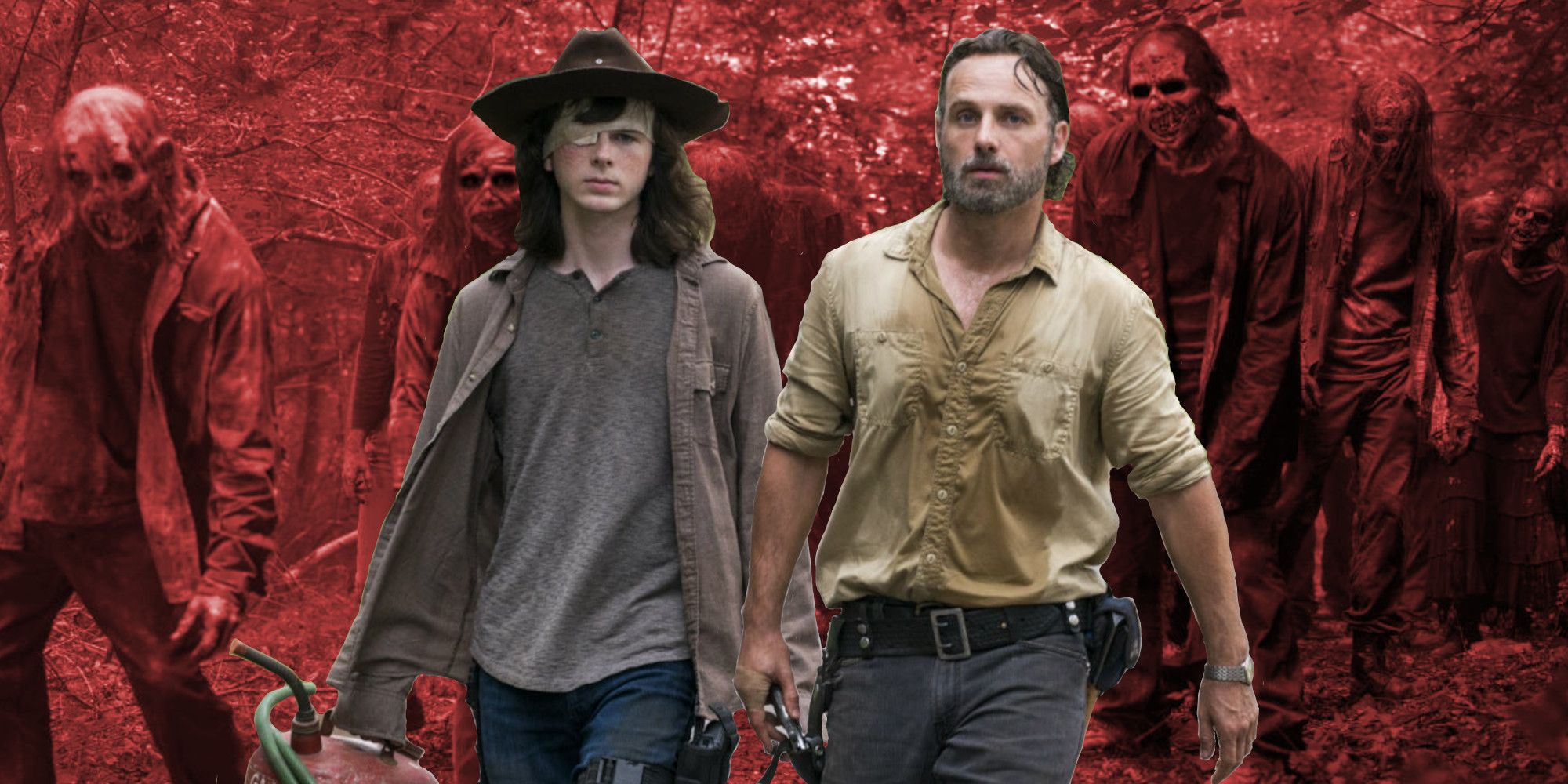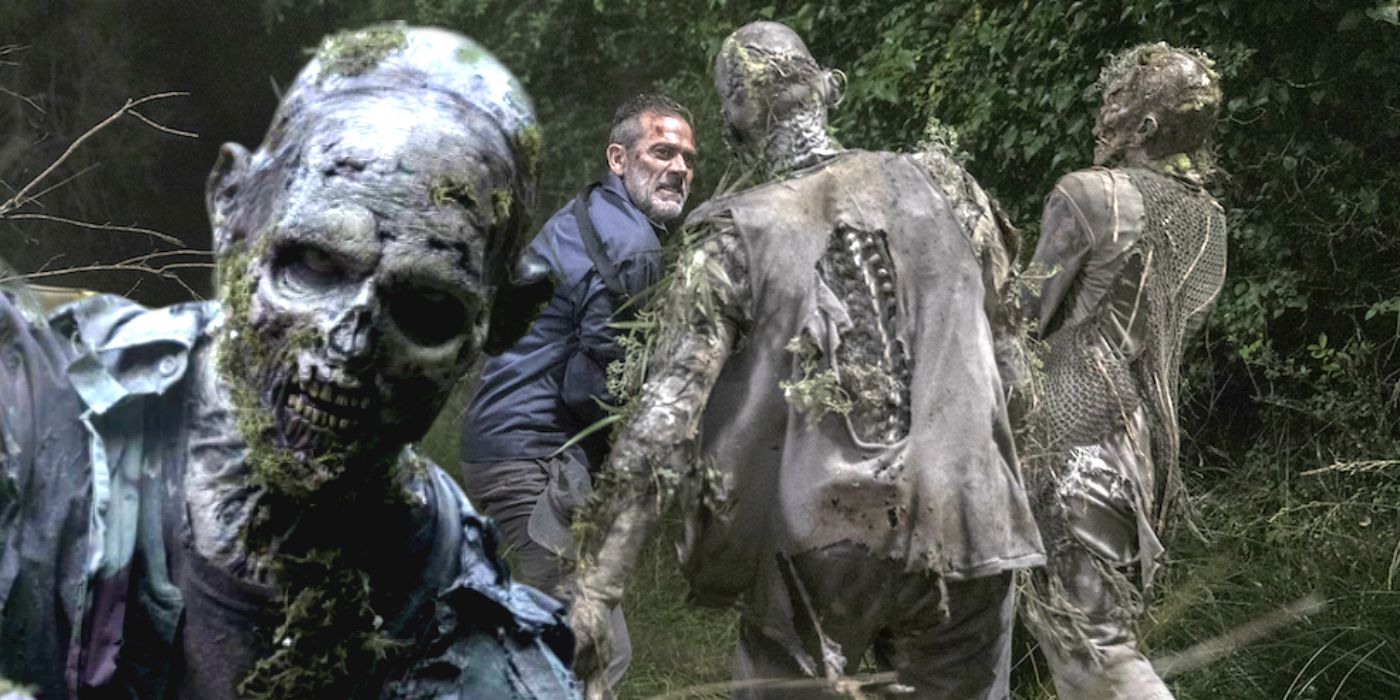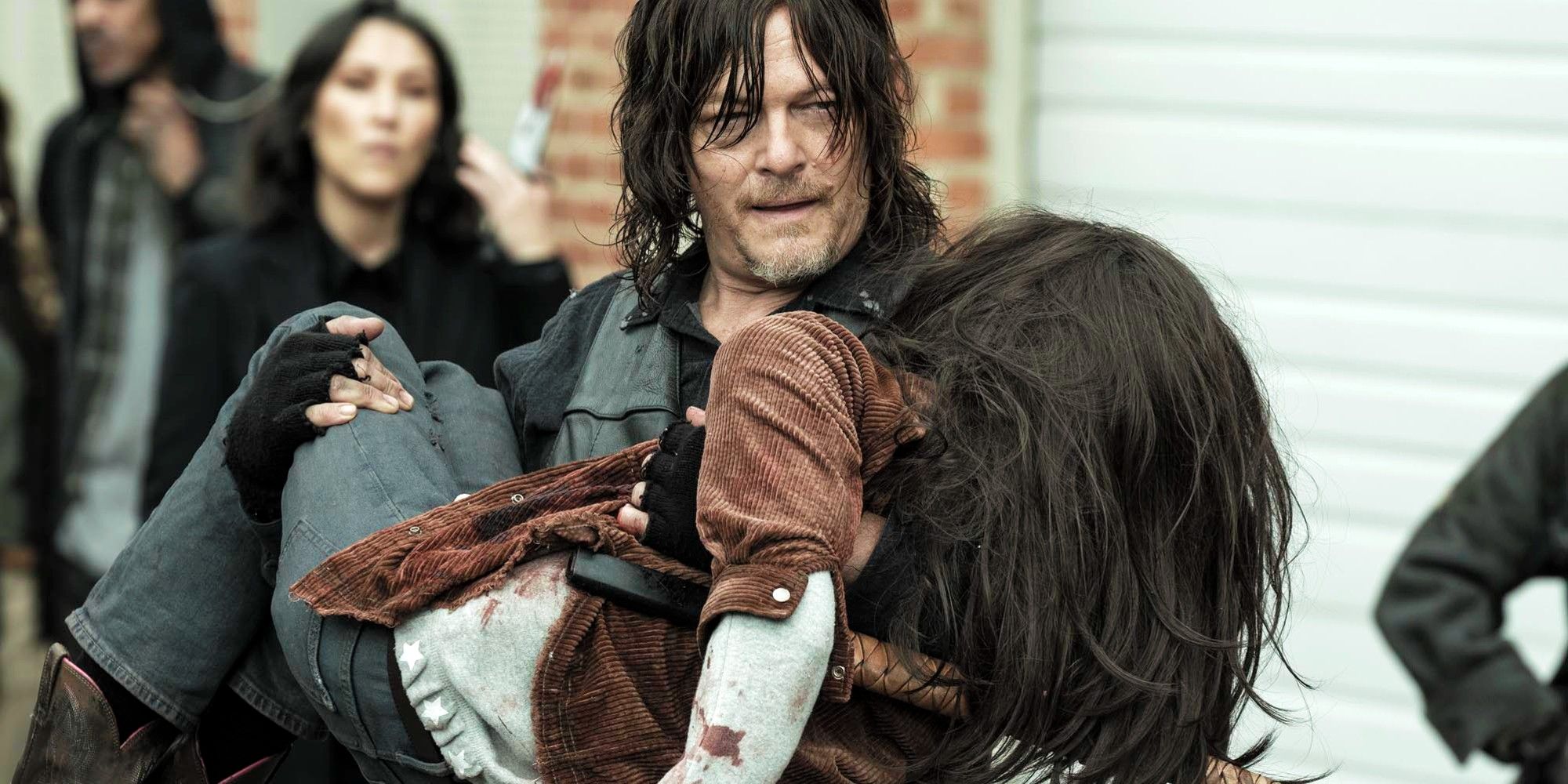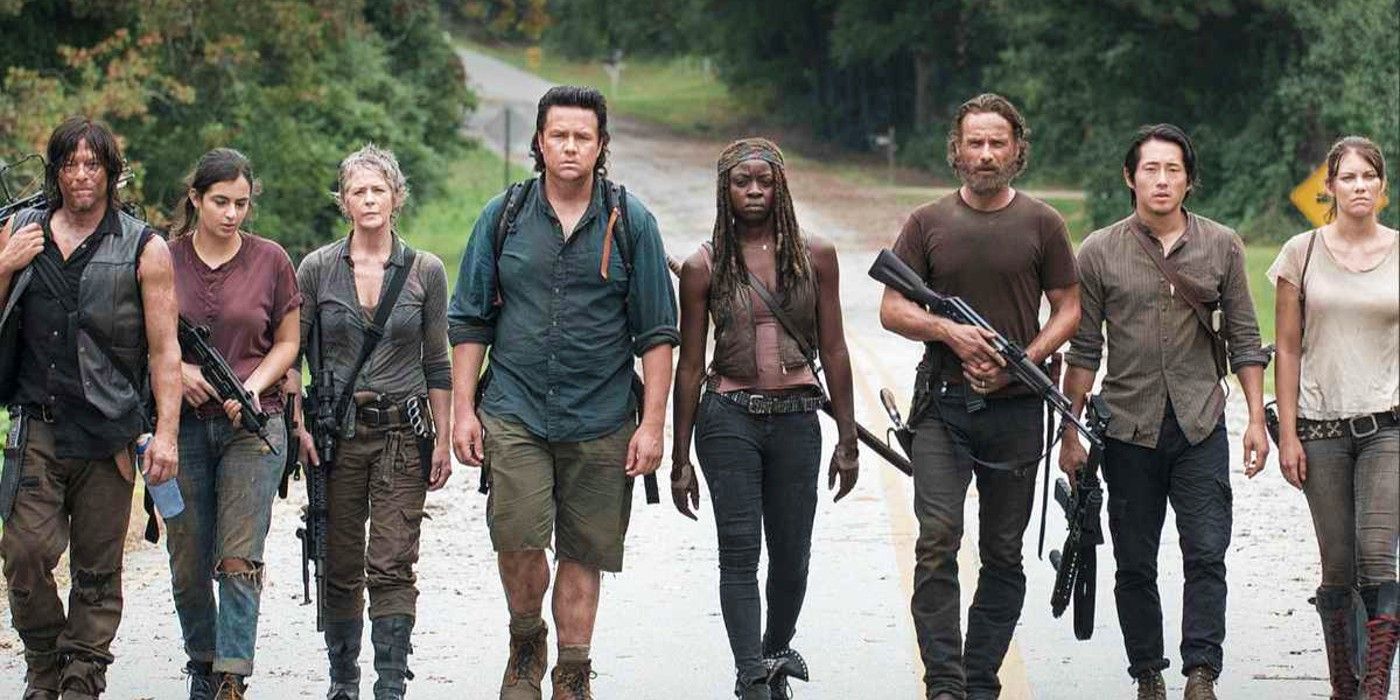The Walking Dead is coming to a close after an 11-season run — but no matter how the series ends, The Walking Dead has certainly changed the zombie genre forever. Premiering in 2010, AMC adapted the eponymous comics of Robert Kirkman into a larger-than-life apocalypse series, following a group of survivors as they fought against the undead and human villains alike. The series saw immediate success, amassing several awards, millions of viewers, and a blooming franchise. Built on the shoulders of the zombie films that came before it, The Walking Dead arrived to tell a new kind of apocalypse story.
Despite The Walking Dead's success, there have also been setbacks over the years; the show's viewership has started to decrease from its peak in season 5, with many giving up on the series in season 7 and beyond. Ending such a genre-defining series is a monumental task, and there has been a worry among audiences that the Walking Dead finale may not live up to the legacy of the series. The Walking Dead isn't perfect by any means, but even with all the good and the bad, there is one undeniable truth — The Walking Dead has left its defining mark on the zombie genre as a whole.
The Walking Dead Popularized A New Zombie Tone
Historically, zombie movies have been used to share sociopolitical commentary. The early days of the genre explored the fear of Haitian culture and voodoo, the terrifying prospects of a post-nuclear society, the civil rights movement, and the downsides of consumerism. Films like 28 Days Later and Night of the Living Dead use the undead as the perfect backdrop to explore the audience's greatest fears. On the other side of the spectrum are movies like Shaun of the Dead and Zombieland; the zom-coms, or zombie comedies, that deliver the same social commentary through humor.
The Walking Dead proves that these aren't the only tone choices in telling a zombie story. Looking beyond just base survival, the series explores what a post-apocalyptic world would really look like. The undead are a threat in the Walking Dead's apocalypse, but so are famine, disease, weather, and, most importantly, humanity. On top of the danger and death, however, The Walking Dead also focuses on hope for the future and what can come after the insurmountable loss. In moving beyond the typical tone of the zombie genre, The Walking Dead has birthed a new kind of zombie story.
How The Walking Dead's Success Took Zombies Mainstream
Before The Walking Dead hit TV screens, the zombie genre was much more niche. While the horrific and gory nature of the zombie typically appealed to a certain type of audience, The Walking Dead helped to bring the zombie, or Walker, into mainstream media in the early 2000s. While some early zombie movies — especially George Romero's Night of the Living Dead and Dawn of the Dead — were quick to become cult classics, the zombie truly broke out into mainstream media in the early 2000s, all due to the success of franchises like The Walking Dead.
With The Walking Dead's success, it seemed like zombies were everywhere. The 2000s and 2010s saw a large spike in zombie flicks, and The Walking Dead paved the way for those that came after it — including movies like World War Z and Army of the Dead that explored the concept of a post-apocalyptic world outside the typical lens. The Walking Dead has spawned a media empire, including spinoffs, video games, and Walking Dead-specific conventions that bring in thousands of fans a year. While zombie media before it may have seen great success, The Walking Dead sparked the zombie's appeal in mainstream media.
The Walking Dead Blended Zombies & Drama
Zombie movies have historically fallen into the horror genre, and for good reason. The zombie as a mythological figure has roots in a long-standing fear of mortality and the unknowns of the afterlife — so, naturally, the fear and gore surrounding the zombie make for a good horror flick. While The Walking Dead has plenty of gore and horror, the long-term format of television allowed the series to explore beyond the typical shock value of the zombie genre. One of The Walking Dead's greatest assets is its large cast of human characters. In exploring both its living and undead elements, Walking Dead has been able to elevate the zombie genre as a whole.
In telling the story of these survivors in the zombie apocalypse, The Walking Dead was able to blend horror and drama into one compelling narrative. Romance, betrayal, friendship, family, death — The Walking Dead has had it all. Fighting the undead week after week would get redundant over the years, but The Walking Dead's use of its lovable heroes, enigmatic villains, and the drama of their lives brought a new life to the genre. In combining the two, The Walking Dead has created a study of the human condition that has a bit of everything for every viewer.
11 Seasons Of Zombie Apocalypse Is A Big Deal
No matter how The Walking Dead finale plays out, the fact that the series has run for 11 seasons is monumental. Breaking into the double-digits lands The Walking Dead the title of the longest-running zombie apocalypse series, and the show certainly had to fight for it. Despite dipping ratings and a showrunner change later in the series, The Walking Dead has managed to have an impressive run and maintain a loyal fanbase. Even if its viewership has dipped in its later seasons, The Walking Dead was once one of the most-watched series on television, and The Walking Dead has had a heavy influence on the series that have come after it.
The Walking Dead finale doesn't mean the story is done. The Walking Dead has several spinoffs in the making, with multiple successful spinoffs already under its belt. Unlike many zombie stories before it, The Walking Dead doesn't focus just on its survivors, but the ramifications of a post-apocalyptic world. The Walking Dead is proof that a post-apocalypse series can hold more substance than just the gore that is typical with the undead. Whether The Walking Dead has a successful conclusion or fizzles out disappointingly, the fact that it has run for so long is a big deal in and of itself.


.jpg)


